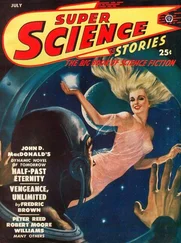Джон Макдональд - More Good Old Stuff
Здесь есть возможность читать онлайн «Джон Макдональд - More Good Old Stuff» весь текст электронной книги совершенно бесплатно (целиком полную версию без сокращений). В некоторых случаях можно слушать аудио, скачать через торрент в формате fb2 и присутствует краткое содержание. Город: New York, Год выпуска: 1984, ISBN: 1984, Издательство: Alfred a Knopf, Жанр: Детектив, на английском языке. Описание произведения, (предисловие) а так же отзывы посетителей доступны на портале библиотеки ЛибКат.
- Название:More Good Old Stuff
- Автор:
- Издательство:Alfred a Knopf
- Жанр:
- Год:1984
- Город:New York
- ISBN:978-0-394-53898-3
- Рейтинг книги:4 / 5. Голосов: 1
-
Избранное:Добавить в избранное
- Отзывы:
-
Ваша оценка:
- 80
- 1
- 2
- 3
- 4
- 5
More Good Old Stuff: краткое содержание, описание и аннотация
Предлагаем к чтению аннотацию, описание, краткое содержание или предисловие (зависит от того, что написал сам автор книги «More Good Old Stuff»). Если вы не нашли необходимую информацию о книге — напишите в комментариях, мы постараемся отыскать её.
In short, here is one of America’s most gifted and prolific storytellers at his early best — a marvelously entertaining collection that will delight Mr. MacDonald’s hundreds of thousands of devoted readers.
More Good Old Stuff — читать онлайн бесплатно полную книгу (весь текст) целиком
Ниже представлен текст книги, разбитый по страницам. Система сохранения места последней прочитанной страницы, позволяет с удобством читать онлайн бесплатно книгу «More Good Old Stuff», без необходимости каждый раз заново искать на чём Вы остановились. Поставьте закладку, и сможете в любой момент перейти на страницу, на которой закончили чтение.
Интервал:
Закладка:
On the third day the little man came. He sighed wearily as he sat on the bedside chair, and brushed with a fat white hand at the gray ash on his dark blue lapels. His nose was long and fat, with the tip covered with little wandering red veins like a miniature road map. He squinted little blue eyes and looked down his nose at Warlow, like a man aiming some strange weapon. He sighed again.
“Now, Pete,” he rumbled, “it’s time we got some of the answers. Jackson says your memory is going to be mixed up, so I got to help you. My name’s Kroschik. I’m a cop. Do you remember anything about what happened in the office?”
“Office?” Peter Warlow felt the strangeness of it. Of course, there must have been an office. He must have worked in an office. And then he saw it. Saw the rows of desks, heard the clatter of the typewriters and the ringing of many phones. His desk was on the end, near the windows. He could even see the small black sign with his name — Peter J. Warlow — printed in discreet gold.
“Yeah. Benson and Coward, where you worked.”
“I remember, but I don’t know what happened. Was I hurt?”
“All we know is that four of you were working late on a Friday night about a month ago. Three guys and a girl. She was a little blondie named Clarissa Paine, but everybody called her Sandy. I’d say she was a cute little piece. The other two guys were J. Howard Jones, a fat guy who is your boss, and Trent Welch, a red-headed college kid who does part-time stuff for Jones.
“Jones says he heard a big argument going on out in the big room. He stepped out of his office and you and this Sandy were yelling at each other. He heard her screaming something about telling everybody. Then he says you pulled a gun out of your desk drawer and shot her in the head. He grabbed one of those heavy gadgets that hold Scotch tape and flung it at you. It caught you smack in the forehead and he called up and reported both of you as dead. But you’ve been lucky. They fixed your bashed-in head and stirred up the front half of your brain with some kind of a stick or knife or something. This Welch came back from the men’s room just as Jones was calling us. Now, do you remember shooting the little lady?”
Peter could hear his heart thudding. The horrible words seemed to belong to some other situations, to other people. It didn’t fit his slowly returning concept of himself. It was like a puzzle that he had read in a magazine, or the first half of a TV play. He couldn’t feel that he had done such a thing. He could remember the faces of the others, but they seemed far away and unreal. He couldn’t remember working late. He couldn’t even remember the sound of Sandy’s voice. He rolled his head from side to side on the pillow and stared at the veins on Kroschik’s nose.
“Can’t remember a thing, hey?”
“But, if... if I... why do you ask...?”
“You mean if we got you hooked why do I ask you questions? The reason is that we like to know reasons and background. We can’t figure why you should knock her off. Your books are all in shape. You got money in the bank. But you could have been in love with her and she wouldn’t play. You’re our killer, but we need some more blanks filled in. Like where you got the toy gun. We can’t trace the twenty-two target job you used, and the surface of it is too corrugated to leave any prints. I don’t like to bother a guy who is just getting well, but this thing has been dragging on for a month now, and I want to get it off the books. You understand?”
The mists in his mind wouldn’t clear. He tried to force his mind back to the office, tried to imagine the sound of a shot in the office. But no stimulus of the imagination would give him any clue to what had happened. At last Kroschik left, with the promise to return on the next day. Peter lay motionless in the bed, forming countless pictures in his mind — trying to fit the shifting impressions into a coherent self-history. But all he could get was a series of quick snatches of past events. In no one of the scenes was there a shot fired. He couldn’t imagine himself shooting anyone. And yet, what if in his previous mental life he had been the type of person who could take a life? What if he had deliberately...?
He awakened with a jump. It was a different awakening than he had experienced before — the slow drifting up out of black curtains of sleep. He tried to move and then remembered, slowly at first, and then with a rush that brought back everything — the white-faced blond woman — it was Jane, his wife. The late work on Friday. The mass of correspondence that had to be gone through, with countless dictations into the office tape equipment. Then he saw it. He shut his eyes and he could see the brown weight turning over slowly in the air as it hurtled toward his eyes. He could even see the glint of light on the shining roll of tape. Yes, it had spun slowly toward him and then a great blackness — a sense of spinning away into a black depth. But what had happened before that? His own hand around a slim, long-barreled gun — he could see his own index finger clenched around the trigger. Could even see the deep semicircular scar across the back of his finger as it tightened on the trigger. There was the crack of a shot and Sandy sliding down behind the desk, her eyes narrowed, quick blood matting her hair. Yes, he had done it. It was too clear — too vivid. It could have been no one else.
He felt helpless as he lay on the bed in the dark room. He couldn’t move. He heard the hum of traffic in a far street, and the click of heels in the corridor outside his room. Above all, he heard his own breath, shallow and quick. He smelled his own acid perspiration brought on by fear. He had nearly died. The great pain had been defeated and now he must get well only to give his life to the state. But why should they kill a man who had changed — a man who flinched at the thought of firing a shot at a human being? The small night light threw motionless shadows against the wall. One of them was the shadow of a chair. A freak effect of the lighting made it look as though there were straps on the arms of the chair. He knew that if he were standing he would feel faint. Nausea made the room spin slowly around him. Yes, his finger had pulled the trigger. The lead had smashed into the brain of the girl Sandy. He began to call, a feeble monotonous sound, more like a groan than a signal. It was many long minutes before he heard steps coming toward his room. A vague form walked in.
“Get the police! Get Kroschik! Tell him I can remember.” The figure left and he tasted blood, realized he had sunk his teeth into his underlip. It was an endless period of waiting. The temptation to tell Kroschik that he had seen Jones shoot the girl was impelling. Then there would be a chance. But if he won, then Jones would pay. And he knew that he had killed the girl. Maybe it would be better to say that he could never remember. But he had already sent for Kroschik to tell what had happened. He felt trapped by his own haste and weakness. He tried to move, to get out of the bed, but found that he couldn’t even lift his arms. The struggle made him sweat more profusely.
The lights clicked on with a blinding flash that sent sharp pains deep into his eyes. He squinted and saw Kroschik standing by the bed, a cigar stub in the corner of his wide flat mouth, his shirt open at the neck.
“Okay, Pete. Give it to me.”
Peter Warlow started slowly, his speech hesitant and fumbling. “I remember that somehow... when the thing hit me, I could see it coming through the air. Before that — before I was hit, there was a vision of Sandy sliding down out of sight behind the desk. But... the worst... I could see my own hand... a long gun, sort of thin, with my finger on the trigger. I could see the scar on the back of my finger, a scar like a new moon... I saw it squeeze the trigger. I must have done it. I don’t see how I could have, but I must have. And I’ll have to take whatever I’ve got coming to me.”
Читать дальшеИнтервал:
Закладка:
Похожие книги на «More Good Old Stuff»
Представляем Вашему вниманию похожие книги на «More Good Old Stuff» списком для выбора. Мы отобрали схожую по названию и смыслу литературу в надежде предоставить читателям больше вариантов отыскать новые, интересные, ещё непрочитанные произведения.
Обсуждение, отзывы о книге «More Good Old Stuff» и просто собственные мнения читателей. Оставьте ваши комментарии, напишите, что Вы думаете о произведении, его смысле или главных героях. Укажите что конкретно понравилось, а что нет, и почему Вы так считаете.
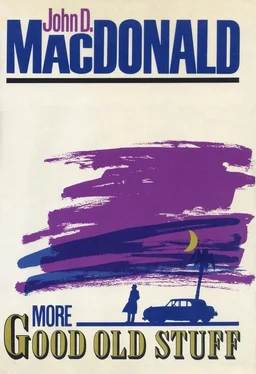
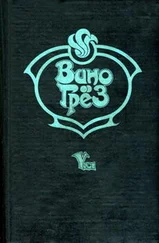
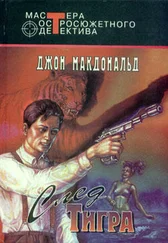
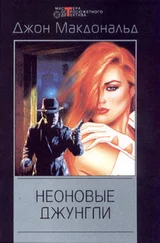
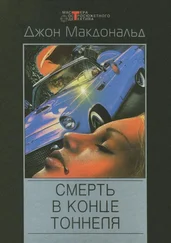
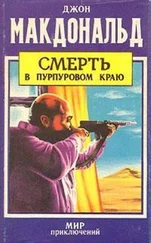



![Джон Макдональд - Wine of the Dreamers [= Planet of the Dreamers]](/books/430039/dzhon-makdonald-wine-of-the-dreamers-planet-of-thumb.webp)

